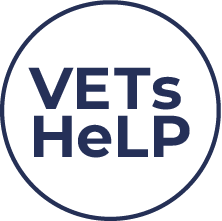How can veterans access health care?
Current serving ADF members
ADF members receive their primary health care from on-base at ADF health facilities staffed by both uniformed and contracted health staff. The health system managed by Defence provides free, comprehensive and coordinated health and welfare services, from prevention, treatment, rehabilitation and recovery. This includes primary health care, dental and mental health services, hospital care, ancillary health care specialist services, diagnostic and radiology services, rehabilitation and suicide prevention (Veteran Mental Health and Wellbeing Strategy and National Action Plan 2020–2023, p. 12).
Reservists and cadets are eligible for treatment from the ADF for any condition relating to their service (but not for routine health care unless they are undertaking continuous full-time service).
Current serving members can also access Open Arms – Veterans and Families counselling for mental health support. Their families can also access this service.
During transition
During preparation for separation from the military ADF members:
-
will undergo a Transition Health and Dental Examination to identify any current issues
-
will be provided with a Transfer of Care Letter outlining their medical history and current problems.
-
are advised to find a new GP and dentist
-
are advised to consider obtaining Private Health insurance
-
are supported to have a Defence-funded consultation with the new provider prior to the veteran’s discharge from the ADF to handover care.
-
are provided a copy of their full medical and dental records to provide to their new civilian provider. Note: for contemporary personnel, these are a download from the Defence electronic health record which can be somewhat difficult to interpret for those with no prior experience of the record, however the transfer of care letter should provide a good picture of the veteran’s health status. You are advised to lodge any compensation claims with DVA and create a DVA My Service account via their My GOV account. Not all veterans do this, or they identify a new problem relating to their service after separation, so they may then seek your assistance with compensation claims (see module 4).
Former serving members
Upon leaving Defence, veterans are now responsible for managing their own health care needs. After transition, veterans access usual civilian health care services under Medicare, state and territory government health arrangements, and the private sector. In addition, they have access to extra health care supported by DVA.
Accepted conditions
Former ADF members may be eligible for a White card or a Gold card that covers specific illnesses or injuries accepted as being related to service. These are known as accepted conditions. They are then able to access DVA under health care for those specific conditions (White card) or all conditions (Gold card). To have conditions accepted, veterans need to put in a claim for compensation with DVA. They may require support from their GP or other specialists to provide medical evidence to support these claims.
DVA Health cards are not generally provided to serving members, as these costs are ordinarily met by the ADF. Visit the Australian Government’s DVA website to learn more about Veteran Healthcare Cards.
Former members of the ADF (including those in reservist and cadet positions) may be eligible to claim compensation for any medical condition related to their service. The entitlements available depend on the time of service and type of service.
Non-liability health care
Non-Liability Health Care (NLHC) allows current and former ADF personnel and some Reservists to receive DVA-funded treatment for
-
Any mental health condition
If a person has eligible service, then they can receive DVA-funded treatment for:
-
Cancer (Malignant Neoplasm) and
-
Pulmonary Tuberculosis
More information
Free treatment for cancer and pulmonary tuberculosis | Department of Veterans' Affairs (dva.gov.au)
Open Arms Veterans and Families Counselling provides mental health and wellbeing support to anyone who has served at least one day of continuous full-time service in the ADF and their immediate families. This includes face-to-face, telephone and online counselling, treatment programs and workshops, suicide prevention and community and peer programs.
1. DVA (2024). Accepted conditions for veterans of selected conflicts. March 2024.
2. DVA. Veteran healthcare cards. https://www.dva.gov.au/health-and-treatment/veteran-healthcare-cards
3. DVA. Health services for the veteran community (updated 24 January 2020). https://www.dva.gov.au/get-support/health-support/health-services/health-services-veteran-community
4. DVA Annual Report 2020–21. Fast Facts. Appendix A: Veteran and claims statistics. Transparency Portal, Australian Government. https://www.transparency.gov.au/publications/veterans-s-affairs/department-of-veterans-affairs/department-of-veterans-affairs-annual-report-2020-21/appendixes/appendix-a

Catherine is a GP in Geelong, Victoria. She has been involved in a wide variety of Medical Education opportunities, these include GP training, lecturing in Medicine at Deakin University, and providing clinical consultancy for the Deakin Indigenous Health team. Over recent years Catherine has moved into planning and facilitating the professional development of Medical Educators and GP Supervisors as well as learning (like everyone else) to do all of this online. Catherine strives to ensure her education events are engaging and innovative, with a dose of appropriate fun.
Read this blog to help you recognise and manage post-traumatic stress disorder (PTSD) in Australian veteran patients. PTSD is one of the most common mental health conditions in Australian veterans. You will read about common symptoms, screening tools, evidence-based treatments, and referral pathways, with links to trusted resources including Open Arms – Veterans & Families Counselling and the Department of Veterans’ Affairs (DVA). It also introduces CPD-accredited training through Medcast’s Veterans Healthcare eLearning Platform (VETs HeLP).
Learn how your general practice can support veteran patients through the Coordinated Veterans’ Care (CVC) Program. This step-by-step guide covers eligibility, care planning, team roles and DVA claiming—helping GPs and nurses deliver structured, patient-centred care for veterans with chronic or mental health conditions.
This article equips GPs with practical strategies to recognise and assess suicide risk in Australian veterans. It outlines tools to support your consultation and assessment, and highlights referral pathways such as Open Arms – Veterans and Families Counselling and DVA services to support early intervention and save lives in general practice.

